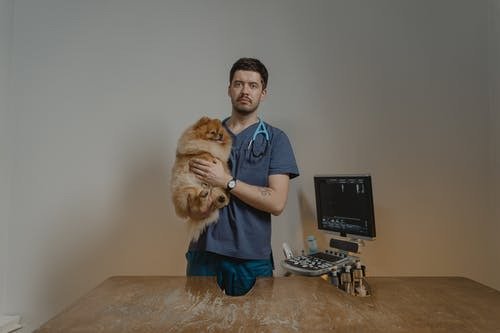As cherished members of our families, pets, too, experience a shift in their healthcare needs as they age. Understanding these changes is critical to ensuring that your senior pet maintains its health, happiness, and quality of life. Just like humans, older pets require more frequent medical attention, and staying ahead of potential health issues is key.
Frequency of Senior Pet Check-ups
So, how often should senior pets visit the vet? While the answer can depend on the individual animal’s health history and breed, veterinarians typically recommend bi-annual check-ups. Regular visits allow for early detection of diseases common in senior pets, such as arthritis, kidney disease, heart disease, and diabetes.
Unpacking the Benefits of Bi-Annual Exams
-
Early Detection: One of the foremost advantages of bi-annual check-ups is the early detection of illnesses. Conditions caught early often have a greater range of treatment options.
-
Weight Management: Regular check-ups help manage your pet’s weight, guarding against obesity, which can lead to other serious health issues.
-
Dental Check: Oral health shouldn’t be overlooked, as it can greatly affect a pet’s overall condition. Vet visits typically include a dental exam to ensure teeth and gums are healthy. For excellent dental facilities, visit websites like https://www.boundbrookvet.com/site/veterinary-services-middlesex/dentistry.
-
Tailored Healthcare: Each senior pet’s health is different, and regular check-ups help create a personalized healthcare plan that adapts to their changing needs.
Fostering Comfort and Familiarity
Regular visits also help senior pets become more comfortable with their veterinary care providers, reducing stress and anxiety during appointments. This familiarity can lead to more accurate results since pets are calmer during examinations and procedures.
Signs Your Senior Pet Needs to See the Vet
Between regular check-ups, it’s essential to monitor your pet for changes that may require a vet’s attention. Here are some signs to watch for:
-
Significant changes in weight can indicate a variety of health issues, from hormonal imbalances to heart disease; both sudden weight loss or gain should prompt a veterinary consultation.
-
Visible discomfort or difficulty moving, such as limping, stiffness, or reluctance to jump, can be a sign of arthritis, joint problems, or other painful conditions requiring a vet’s assessment.
-
Changes in eating or drinking habits, like a lack of appetite or excessive thirst, can signal serious conditions such as diabetes or kidney disease in your senior pet.
-
Behavioral changes, such as increased irritability, can suggest your pet is in pain or experiencing cognitive dysfunction; a thorough evaluation can determine underlying causes and treatment options.
-
Symptoms of vision or hearing loss, including bumping into objects or not responding to calls, can affect your pet’s quality of life and may be related to age or health conditions.
Considering Pet Vaccinations
Preventative care, like vaccinations, is essential throughout a pet’s life. While puppy vaccinations are often talked about, it’s important to continue updating vaccinations as your pet ages. Senior pets may have a weakened immune system, making keeping up with vaccine schedules critical to shield them from preventable diseases.
Veterinary Services That Go Beyond Check-ups
At times, senior pets may require surgical interventions for various health issues. Having access to a skilled veterinary surgeon in Middlesex, NJ, can be critical in providing life-improving or life-saving procedures tailored to the unique needs of your aging companion.
Home Care Tips for Senior Pets
Caring for your senior pet doesn’t stop with the vet visit. Here’s how you can support your furry friend’s health and comfort at home:
-
Provide a comfortable resting area that supports their joints.
-
Keep them mentally engaged with low-impact activities.
-
Adjust their diet to align with their nutritional needs.
-
Ensure easy access to food, water, and their favorite spots around the house.
When to Consider More Frequent Visits
-
Standard Bi-Annual Visits: Bi-annual vet visits are the norm for senior pets.
-
Exceptions for Chronic Conditions: Pets with chronic conditions may need visits more frequently.
-
Tailoring to Your Pet’s Needs: Discuss the ideal schedule for your pet’s unique health profile with your vet.
-
Special Needs Consideration: Pets with special needs might also benefit from more regular check-ups.
Navigating End-of-Life Care
The golden years of your pet’s life can be a loving and comfortable time with the right care and attention. Sometimes, this includes making decisions about end-of-life care. Though it can be difficult to think about, regular vet check-ups can help you understand your pet’s needs during this sensitive stage and ensure they have the best possible quality of life.
Wrapping Up
Senior pets are invaluable family members who require extra care as they age. They need regular vet visits to monitor health changes and personalized care plans to address specific needs. At home, be observant and seek veterinary services tailored to ensure their comfort. It’s crucial to provide them with the love and attentive care they’ve always given us, helping them to enjoy their golden years to the fullest. Take immediate action to safeguard the well-being of your aging animal companions.

